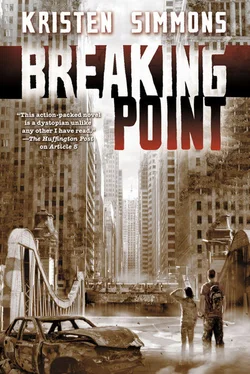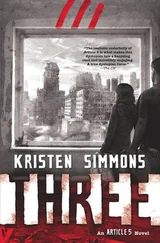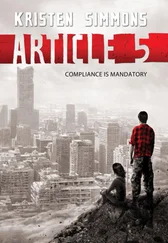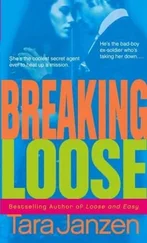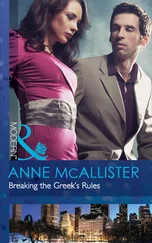After I’d sent off Jack, I went for Chase, but he was already barreling in my direction. He grabbed my uninjured hand, and I could feel the slick sweat and blood between our palms. Without another word we ran, hearts in our throats, fate on our heels. His grip never faltered.
The way became less cluttered by rock and debris as we approached the barracks and the exit route, but the ceiling had begun to rumble again. Another collapse was imminent. We could not move fast enough.
A crash came from behind us—an aftershock of the original bombing that had weakened the whole infrastructure. The roar of the rock and hiss of broken pipes shattered my eardrums, the repercussion reverberating in my chest like the smack of a bass drum. The floor trembled, then seemed to lift and pitch, and we were on an ocean of sand and rock, clinging to each other, fighting to stay upright.
I willed myself not to look back, but I knew the landslide was coming. It swallowed each remaining lantern, until behind us was only black, and all that remained ahead was the wreckage that appeared in the bouncing beams of our flashlights.
Finally the barracks came into view, and Truck darted through a metal door that said BOILER ROOM—EXIT. Sean had been waiting; he motioned us to hurry. We passed him, colliding into the bodies that were stacked inside.
“Stop! It’s this way!” I heard Sean yell behind me. I turned in time to see Tucker staring farther down the hall, toward the airfield exit where we had entered the tunnels, a desperate look on his face.
Sean grabbed his sleeve and jerked him back toward us, just as the cave-in reached the barracks. The crunch and squeal of the medical car dissipated in seconds beneath the rubble; any visual of the tunnel was suddenly blocked behind the slamming metal door. Tucker stumbled, pale panic stretching his features thin.
This hallway was damp and dark, and my eyes watered from the acrid fumes of gasoline. I remembered the flames beside the cave-in; there were probably multiple gas leaks. My breath felt dense and palpable in my throat as the tunnels outside collapsed.
“Eyes open!” Truck yelled, and ran on.
He shoved through a door on the opposite end of the corridor to a stairway and we ascended five levels, exiting into a room filled with rusted pipes and human-sized cobwebs. Rats scurried across the floor. For the first time in my life, I welcomed the sight of them: we were heading toward the living. Below us, the collapse had halted, and though we knew the reprieve wouldn’t hold, the air wafted with the shudder of one collective breath.
We emerged on the other side into a women’s restroom, like those in the old department stores we’d visited when I was a kid.
“No joke,” Truck laughed thinly. “My biggest nightmare in high school was accidentally walking into the girl’s bathroom.”
Chase’s hand came around the back of my neck. “You okay?” He was breathing hard.
I nodded, checking him and then Sean for injuries.
“Where are we?” asked Tucker.
“Near the lake. We’re on the dark side of town—there’s no standardized power over here,” Truck said. “The Bureau doesn’t come out this way. The worst we’ve got to watch for is flooding.”
“They never replaced the levee after the War,” Chase explained at our blank looks.
When Chicago had been bombed, the flood walls had been destroyed, bringing Lake Michigan’s shore a block farther inland. The fallen buildings had pushed the waterline even higher. On the news I’d once seen a woman’s furniture floating away with the current.
Truck led the way into an open lobby, where at least thirty people were crammed onto the left side of the broken tile floors. The ceiling on the right half had collapsed. Broken wires, fluorescent lights, and fluffs of insulation hung down to the damp linoleum.
I’d thought the underground had looked bad. In our urgency, I’d temporarily forgotten what the War had done to the top half of the city.
It was past curfew, but only just; I felt like I could finally breathe when the muted colors and shadows became decipherable through the cracks in the ceiling. If I never went underground again it would be just fine by me.
The medic was triaging those most injured, giving his approved list to Jack, who boarded them into an FBR supply truck outside. From the looks of it, he’d come back to his senses, but now seemed too embarrassed to acknowledge me.
“What are they doing here?”
I stiffened. My eyes found the boy who’d been crushed beneath the pipe. His leg was wrapped now with a wool blanket tied off with bungee cords, and he slouched against the back wall, clearly a recipient of a high dose of morefeen.
“Shut up already,” grumbled Jack. “They weren’t followed.”
So this wasn’t the first time this boy had made this accusation. I hoped no one else shared his views.
“You think we did this?” Sean asked.
“Odd timing,” the boy slurred. “Sniper shows up and they bomb the tunnels all to Hell.”
“We didn’t have to roll that pipe off your leg, you know!” I wanted to confess everything then, to tell them I wasn’t the sniper, Cara was, and now that she was dead, there was no sniper. But those people in the tunnels had listened to me because they thought I was important, and maybe that had saved their lives. I couldn’t take it back.
On some level I understood that Chicago needed someone to blame. But we were the last to leave the tunnels. We had sweat and bled beside them. Didn’t that mean anything?
Chase seethed beside me. The indecipherable muttering from the survivors rose in volume.
Truck, who had gone outside to check the vehicle, returned and cut the tension with his trademark missing-tooth grin.
“Sit tight, ladies,” he said. “Checkpoint express is pulling out of station. I’ll be back as soon as I can to get the rest of you.”
A communal groan. At least half would be left behind, some badly injured.
“I’m not going.”
All eyes turned toward Tucker, mine included.
“I won’t be further trouble,” he continued. “If they meant to smoke out the sniper like that kid says, we’ll be putting the convoy in further danger. I’ll stay back. Draw them away from the transports.”
What a hero, I thought.
“We’ll all stay,” said Chase, a wary eye on his ex-partner. “We came here for someone. We’re not leaving without her.”
My heart pounded in my chest. Beside me, Sean exhaled.
* * *
THEfirst batch left for the Indiana checkpoint, and though I’d made my decision to stay, I couldn’t bring myself to watch them leave. For the first time since I’d learned the truth about my mother, I wanted to go to the coast. I wanted peace.
In Truck’s absence, a grim anticipation settled over us. It thickened, until someone finally joked about how a guy named Stripes had cried like a baby when the bombs went off.
“You think that’s bad,” a bald man with a goatee responded, “you should have seen Boston sprint for the exit. You’d have thought his boots were on fire.”
Some nervous chuckles.
They called one another girls’ names. Sally. Mary. They laughed about who pissed their pants and who broke down. It was sexist and crass, but I didn’t even care. You said what you could to pull yourself out.
I thought of how Jack had laughed in the tunnels after the blast, and wondered if he’d had it right. When things got really bad, the horror came full circle, and even violence got to be funny again. It didn’t have to make sense.
We inventoried the supplies, ate salvaged rations of crackers and canned mix-meat, and waited for cover of darkness to sneak to Rebecca’s rehab. In our quest to stay, we’d been granted a break from the accusations and were donated fatigues, rations, and two handguns. The boy from the supply room, still lightly dusted and streaked with sweat, approached me shyly and handed me a Sister uniform he’d salvaged from the supply room.
Читать дальше
